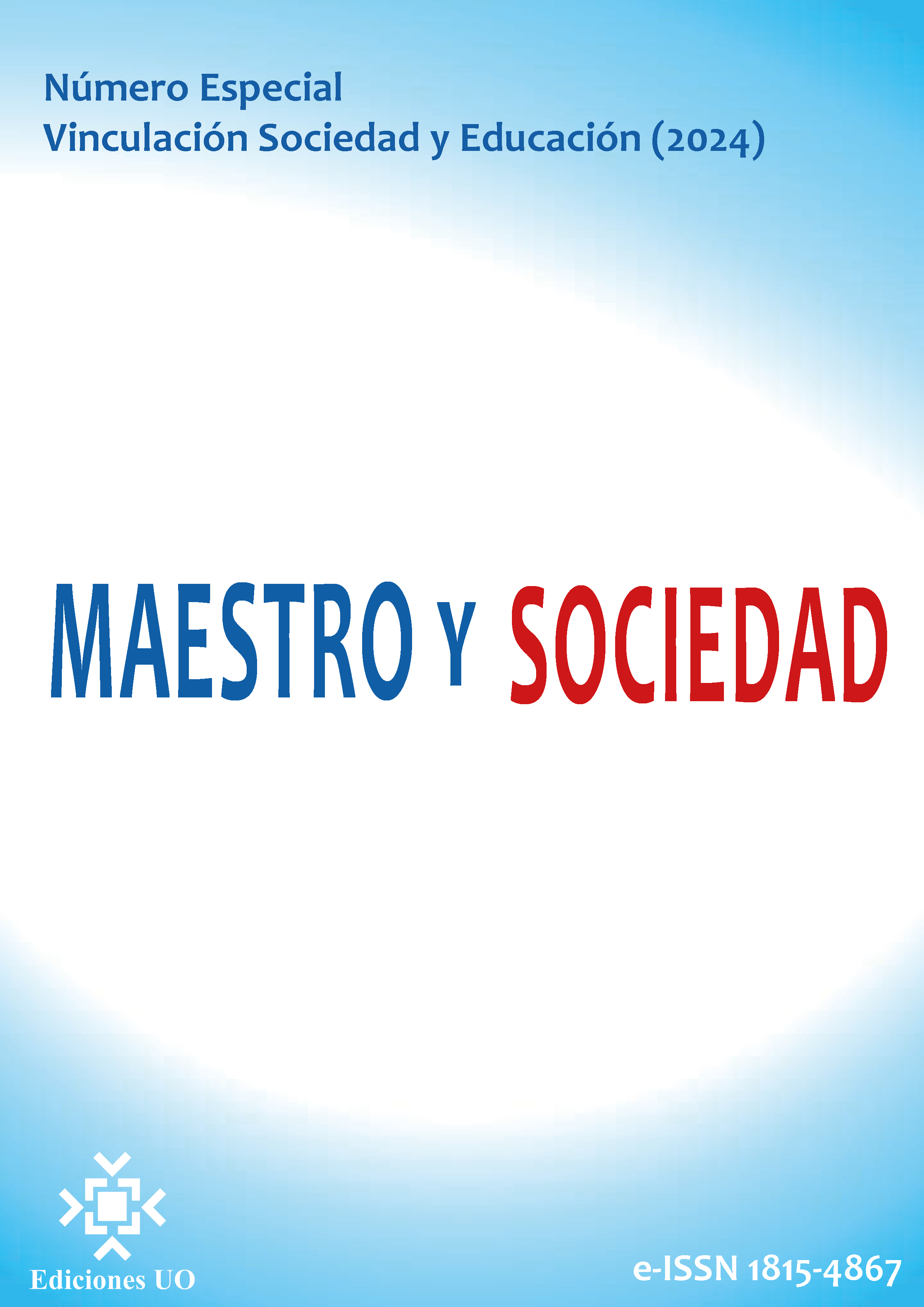Technological literacy: challenges for a competitive and productive population
Keywords:
digital literacy, technological literacy, technology, technological knowledgeAbstract
Introduction: Technological knowledge makes the difference in who is or is not prepared to take on the challenges of this millennium. The present research is about identifying the areas of application of technological literacy programs or projects that have been developed over the last five years, describing the different countries and the main areas of application. Materials and methods: The development of the research was carried out using the systemic literature review method, where it begins by identifying the main search parameters and selection of information, continuing with the extraction and classification of the data obtained, concluding with the analysis of the relevant aspects obtained from the identified investigations. Results: As a result, it was possible to obtain that, 59 selected articles referring to "Technological literacy", "digital literacy", "lack of knowledge of technology", "areas of technological/digital lack of knowledge", it was possible to identify that countries such as Cuba, Venezuela, Oman, Guatemala, Brazil and Paraguay have a lower percentage (2%) because the most significant contributions in the plans and programs that these governments have used to promote the use of information and communication technologies as a measure of technological literacy are have been determined not to be a priority in schools. Discussion: The challenges of technological literacy imply changes in the conceptions of students and teachers about the nature and effects of technology, making it necessary to create new learning spaces that allow the student to develop the skills necessary to solve problems through through the use of this. For this reason, 59 articles have been analyzed regarding "Technological literacy", "digital literacy", "technology ignorance", "areas of technological/digital ignorance", from different countries, the following results are presented. Conclusions: This research shows that the implementation of technological literacy programs allows the necessary competencies and skills to be developed in students and society in general to identify problems, propose solutions and make decisions through the use of technology, generating Thus, a challenge for educational institutions, while the need for more flexible institutions that allow the development of interdisciplinary work and that includes society and the problems that surround them is demanded.
References
Alejaldre, L., y Álvarez, E. (2019). La competencia digital docente del profesor universitario 3.0. Caracteres. Estudios Culturales y Críticos de La Esfera. Digital, 8 (2), 205-236. https://eds.p.ebscohost.com/eds/pdfviewer/pdfviewer?vid=21&sid=376e25de-a6a0-427f-8de9-044caeec1872%40redis.
Arias, J. L., Covinos, M. R., y Cáceres, M. (2022). Tecnologías de Información y Comunicación versus Upskilling y Reskilling de colaboradores públicos. Revista Venezolana de Gerencia, 27(98), 565-579. https://doi.org/10.52080/rvgluz.27.98.12.
Carrizo, D. & Moller, C. (2018). Estructuras metodológicas de revisiones sistemáticas de literatura en Ingeniería de Software: un estudio de mapeo sistemático. Ingeniare, 26, 45-54.
García, J. (2022). Didáctica de la tecnología para educación básica primaria: una configuración para la alfabetización tecnológica. Tesis Doctora, Facultad de Ciencias Jurídicas y Sociales, Universidad Simón Bolívar.
González, D., Olarte, F., & Corredor Aristizabal, J. (2017). La alfabetización tecnológica: de la informática al desarrollo de competencias tecnológicas. Estudios pedagógicos (Valdivia), 43(1), 193-212. https://dx.doi.org/10.4067/S0718-07052017000100012
Martínez, (2022). Competencias digitales para mayores. Madrid, RA-MA Editorial. ISBN978-84-1944-402-8. Recuperado de https://elibro.net/es/ereader/espam/222640?page=9.
Zepeda, H. y Mendez, M. (2017). Aplicaciones multimedia para el fortalecimiento de competencias laborales. Revista Iberoamericana de Contaduría, Economía y Administración: RICEA, ISSN 2007-9907, Vol. 5, Nº. 10, 465-480.
Published
How to Cite
Issue
Section
License
Copyright (c) 2024 Jéssica Johanna Morales Carrillo, Ligia Elena Zambrano Solórzano, Ramón Agustín Varela Muñoz, Francisco Xavier Pico Franco

This work is licensed under a Creative Commons Attribution-NonCommercial-NoDerivatives 4.0 International License.
This journal provides immediate open access to its content, based on the principle that offering the public free access to research helps a greater global exchange of knowledge. Each author is responsible for the content of each of their articles.



























 Universidad de Oriente
Universidad de Oriente 